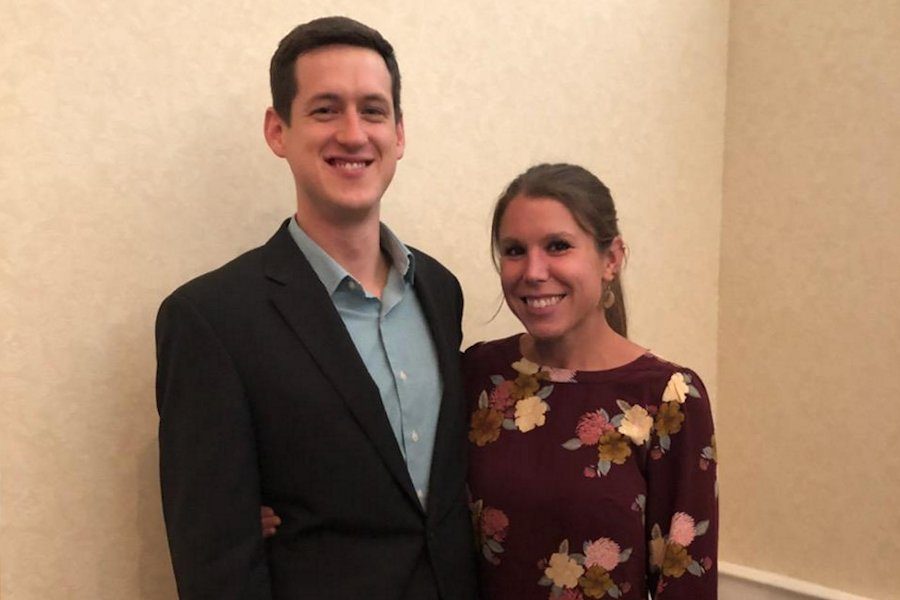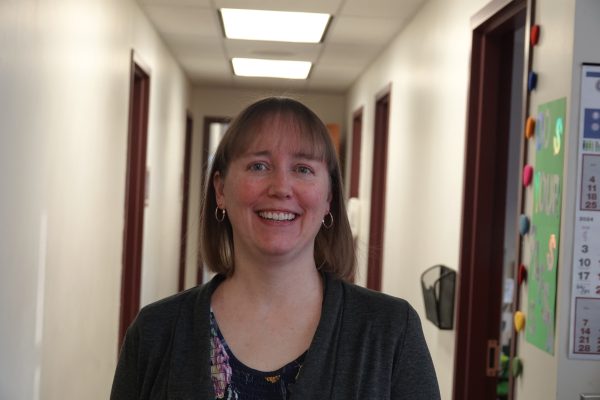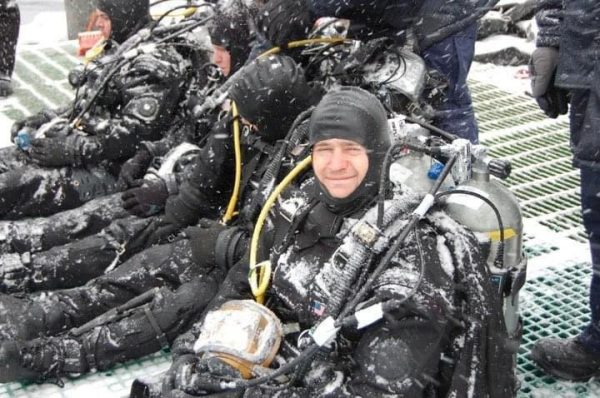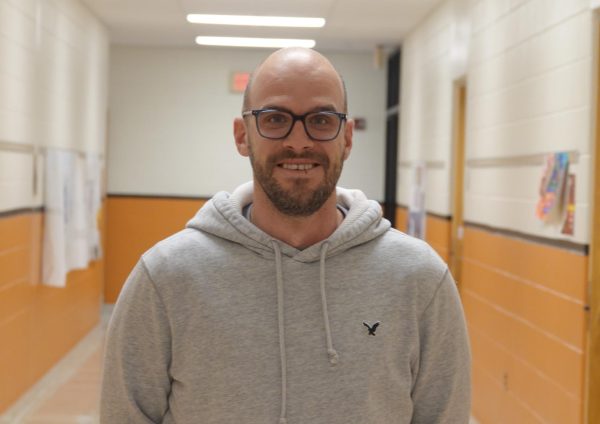Hartman Puts Her “Heart” Into Battle With Teenage Eating Disorder
Megan Hartman, who overcame teenage anorexia, and her husband, Brandon, attending a wedding in Philadelphia.
Mrs. Megan Hartman teaches physical education and health to her students at TAHS. However, her life wasn’t always the perfect image of fitness.
Nine percent of all American women suffer from anorexia in their lifetime, and Hartman is unfortunately among that population, enduring and overcoming her eating disorder from her teenage years.
With this being National Eating Disorders Awareness Week, Hartman was willing to share her story in hopes of helping others in a similar situation.
“After months of losing weight, my [high school] basketball coach finally called my parents expressing his concern for me. I had dropped a lot of weight, and no longer had any energy to practice or play,” said Hartman.
Once I realized I could easily control what I ate (or didn’t) and how my body looked, it gave me a sense of peace and a feeling of complete control over my life.
— Megan Hartman
Hartman always had a perfectionist personality, which spiraled into her health obsession.
After her parents were contacted, Hartman went to a pediatrician, who then recommended her to a specialized eating-disorder counselor.
“It was kind of an area that I could have complete control over. I was always pretty athletic, so I didn’t have any weight to lose. Once I realized I could easily control what I ate (or didn’t) and how my body looked, it gave me a sense of peace and a feeling of complete control over my life,” said Hartman.
Hartman wasn’t just physically unhealthy. She also suffered in her personal life with her friendships and relationships.
“I avoided any social situation where I may have to eat, so a lot of my friend interactions stopped. I had a very specific exercise regimen that I adhered to, so that also squashed my social life. Aside from my compulsive behaviors, I was exhausted all the time, so I really didn’t even want to hang out with friends,” said Hartman.
She lost friends in her life, leading to an inactive social life. Hartman also had strained relations with her family.
Recovery is a long process, and I worked on it well into adulthood. Anorexia is mental and emotional, so just gaining weight is not the cure.
— Megan Hartman
Although Hartman is now considered recovered, anorexia, like any eating disorder, lasts a lifetime and is hard to overcome.
“Eating disorders are something that a lot of people struggle with their whole life. Even though I eat normally for the most part now and look normal, I could still tell you the calorie content of almost any food,” said Hartman.
Even after all of these years, Hartman wishes she would’ve gotten helps sooner and hopes anyone struggling will come forward and get help with their health issues.
“I know I didn’t want help at the time, but looking back, I missed out on a lot of life for a couple years. Getting help is crucial. Recovery is a long process, and I worked on it well into adulthood. Anorexia is mental and emotional, so just gaining weight is not the cure. To recover, you have to relearn how to think about food, exercise, your body, and what is really in your realm of control. The sooner you get help, the better your chances fully recovering,” said Hartman.

Hello! My name is Hannah and I’m (finally) a senior at TAHS. I hope to be writing the swim stories and other student and alumni spotlights. This is my...


















Taylor Laber • Feb 28, 2019 at 1:24 pm
this might get personal but here we go
with the pullout quote, “Once I realized I could easily control what I ate (or didn’t) and how my body looked, it gave me a sense of peace and a feeling of complete control over my life,” i wish it was easy for me. at home, my grandfather and my mom often buy unhealthy food and etc, which forces me to sort of conform to that lifestyle. i would say, “i don’t want this,” but then it only stops for a day, or at most a week. i can’t control what i eat in a way. when i fall out of the healthy habits once in a while, they take it as “oh, she’s stopped, back to the ol’ grind” and get the unhealthy garbage.
i’ll suggest what i want, but it’s either too expensive or nobody can go out to get it (either my grandfather spent all of the money on snuff or my mother is busy with work). usually when i’m not home and either on vacation or my mom actually is able to go places and be home, i can actually eat something healthy.
i know my family means well, but, sadly, being able to control what you eat isn’t always a given to people. i wish this applied to me more times than not.
anyways great story, love that our teachers can relate to those experiences a lot of teens go through!